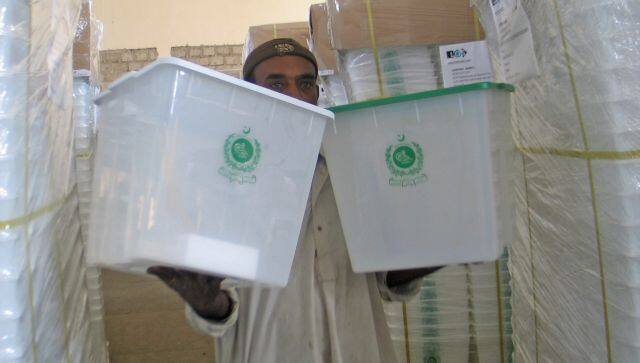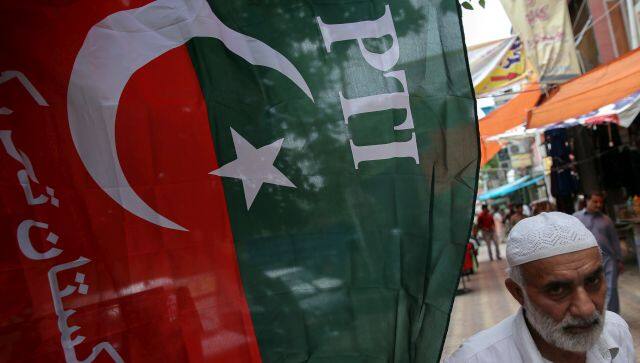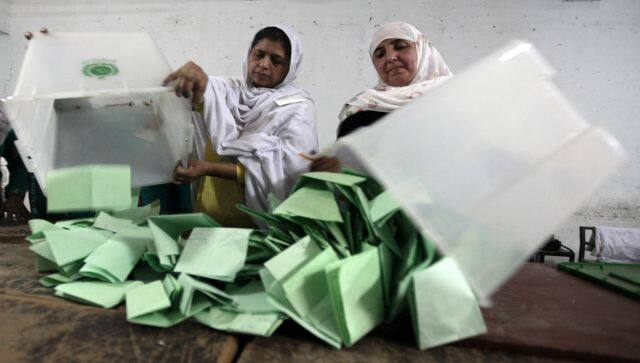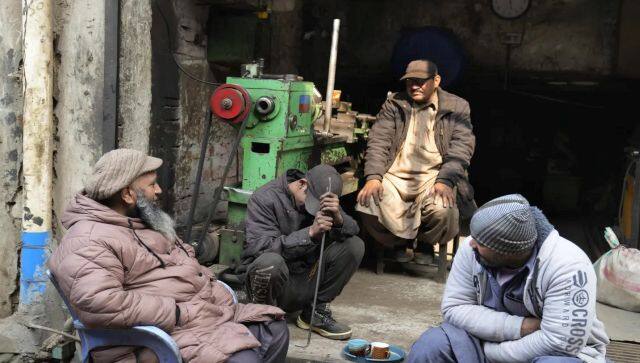Pakistan has got 99 problems and elections are one of them. The neighbouring nation is facing its worst-ever economic crisis . Lakhs are jobless, and food and essentials have become unaffordable amid soaring inflation and energy prices. Amid all this, a general election looms in February. Last month, the Election Commission of Pakistan (ECP) announced that the polls would be held on 11 February . But how will Pakistan get funds to carry out the exercise? We take a look. Why was there a delay in the release of poll funds? After an alarm over the delay of urgently needed funds to conduct elections , the Pakistan finance ministry assured the poll watchdog of releasing Rs 17 billion “in a day or two”. The money was disbursed on Tuesday after Imdadullah Bosal, finance secretary, was summoned to the ECP to explain his position.
The election body had asked for Rs 51 billion for the polls but after several meetings agreed upon Rs 47 billion. Rs 5 billion was shared during the previous fiscal year. In the budget passed in June, the government had allocated Rs 42 billion but so far Rs 10 billion has been released to the ECP, according to a report in Dawn. The ECP sent several reminders to the finance ministry for the immediate release of funds but reportedly received no response. Hence it had no choice but to summon the finance secretary. Dawn quoted a source as saying that the ECP was so perturbed by the delay in the release of funds that it had decided to write to the caretaker Prime Minister Anwaarul Haq Kakar to intervene. But now after assurance from the finance ministry, it need not turn to the PM. “Rs 17 billion are urgently needed for holding the general elections on February 8, which he [secretary] has promised to release urgently,” the source told the newspaper. The ECP wrote a letter to the minister on 14 November which was received on 18 November. “Disbursement of funds requires approval at various levels,” a finance ministry official told Dawn. [caption id=“attachment_13469312” align=“alignnone” width=“640”] A worker from the Pakistan Election Commission carries ballot boxes to be distributed to the polling stations ahead of general elections in Karachi in 2007. The poll needs Rs 47 billion to hold elections of which some money has been disbursed. File photo/Reuters[/caption] Is there a shortage of funds? There has been speculation that amid the ongoing financial crisis, the finance ministry is falling short of funds. However, the caretaker Minister for Information and Broadcasting and Parliamentary Affairs Murtaza Solangi ruled out any crisis in meeting the financial needs of the ECP. “There is no crisis on meeting the financial needs of the ECP… Whatever budgeted amount is needed by the ECP will be released as per its needs accordingly,” Solangi wrote on X.
A worker from the Pakistan Election Commission carries ballot boxes to be distributed to the polling stations ahead of general elections in Karachi in 2007. The poll needs Rs 47 billion to hold elections of which some money has been disbursed. File photo/Reuters[/caption] Is there a shortage of funds? There has been speculation that amid the ongoing financial crisis, the finance ministry is falling short of funds. However, the caretaker Minister for Information and Broadcasting and Parliamentary Affairs Murtaza Solangi ruled out any crisis in meeting the financial needs of the ECP. “There is no crisis on meeting the financial needs of the ECP… Whatever budgeted amount is needed by the ECP will be released as per its needs accordingly,” Solangi wrote on X.
How will political parties fund their campaigns? With polls two months away, spending by political parties and candidates will surge. During an election year, parties spend far more than they do at other times. For three big parties in the country – Pakistan Muslim League-Nawaz (PML-N), Pakistan Tehreek-e-Insaf (PTI), and Pakistan People’s Party (PPP) – a big source of funds are the application fees collected by candidates seeking party tickets. The PML-N will collect Rs 200,000 and Rs 100,000 as non-refundable application fees for party tickets for the National Assembly and provincial assemblies, respectively, this election season, according to a report in Dawn. During the 2018 polls and by-elections, Imran Khan’s PTI earned Rs 478 million through application fees, amounting to 45 per cent of its total income in the financial years 2017-2018 and 2018-2019. Nawaz Sharif’s PML-N collected Rs 140 million, which comprised 95 per cent of its income during 2017-2018. Bilawal Bhutto-Zardari’s PPP and PPP-P earned about Rs 95 million, constituting around 89 per cent of their income during 2017-18, Dawn reports. [caption id=“attachment_13469352” align=“alignnone” width=“640”] A man walks past a flag of the Pakistan Tehreek-e-Insaf (PTI) at a market, a day after the general election in Islamabad, on 26 July 2018. The party earned Rs 478 million through application fees by candidates that year. File photo/Reuters[/caption] Political parties in Pakistan thus receive huge sums from candidates as unaccounted donations in return for tickets. The rise in rich candidates then comes as no surprise. The other source of funds is donations received from non-members. The PTI received donations worth Rs 2.5 billion in the past 13 years, the most among political parties in the country. The PML-N and PPP collected Rs 641 million, which is 33 per cent of its total income and Rs 18 million, which amounts to 4 per cent, respectively, the report says. Also read: How is a ‘broke’ Pakistan handing out 45% salary hikes?
How much could the elections cost Pakistan? In May last year, the ECP had estimated the cost of holding the
2024 elections
at Rs 47 million. The 2018 elections cost the country Rs 31 billion and the 2013 polls Rs 13 billion. The cost of the general elections has witnessed a Rs 34 billion increase during the last 10 years, according to a report in The Nation. A 2021 report by GeoTV said that Rs 47 million will be spent on transportation, polling exercise, training, printing, remunerations and security if the ECP opts for the traditional mode of voting. But if electronic voting machines are deployed, it will need nearly Rs 230 billion. Overseas voting operations are expected to cost Rs 100 billion. The poll body will have to shell out another Rs 17 billion for security arrangements during the elections. According to an estimate given by the ECP, the 2023 polls will cost the federal government roughly 1,000 times more than the last three general elections, which totalled Rs 28.6 billion, the GeoTV report says. [caption id=“attachment_13469372” align=“alignnone” width=“640”]
A man walks past a flag of the Pakistan Tehreek-e-Insaf (PTI) at a market, a day after the general election in Islamabad, on 26 July 2018. The party earned Rs 478 million through application fees by candidates that year. File photo/Reuters[/caption] Political parties in Pakistan thus receive huge sums from candidates as unaccounted donations in return for tickets. The rise in rich candidates then comes as no surprise. The other source of funds is donations received from non-members. The PTI received donations worth Rs 2.5 billion in the past 13 years, the most among political parties in the country. The PML-N and PPP collected Rs 641 million, which is 33 per cent of its total income and Rs 18 million, which amounts to 4 per cent, respectively, the report says. Also read: How is a ‘broke’ Pakistan handing out 45% salary hikes?
How much could the elections cost Pakistan? In May last year, the ECP had estimated the cost of holding the
2024 elections
at Rs 47 million. The 2018 elections cost the country Rs 31 billion and the 2013 polls Rs 13 billion. The cost of the general elections has witnessed a Rs 34 billion increase during the last 10 years, according to a report in The Nation. A 2021 report by GeoTV said that Rs 47 million will be spent on transportation, polling exercise, training, printing, remunerations and security if the ECP opts for the traditional mode of voting. But if electronic voting machines are deployed, it will need nearly Rs 230 billion. Overseas voting operations are expected to cost Rs 100 billion. The poll body will have to shell out another Rs 17 billion for security arrangements during the elections. According to an estimate given by the ECP, the 2023 polls will cost the federal government roughly 1,000 times more than the last three general elections, which totalled Rs 28.6 billion, the GeoTV report says. [caption id=“attachment_13469372” align=“alignnone” width=“640”] Election workers count ballots after polls closed for Pakistan’s general elections in Peshawar in May 2013. Next year’s elections are expected to be the most expensive in the country’s history. File photo/Reuters[/caption] How bad is the economic situation in Pakistan? Ironically, the country and its politicians will spend millions on elections at a time when the common man is struggling to make ends meet. According to a report in the BBC, 700,000 workers have lost their jobs in recent years after a closure of 1,600 clothing factories in the crisis-hit country. While
inflation is soaring
,
energy prices
are expected to see a further hike in January. Both food and power are making everyday Pakistanis poorer, with several forced to seek additional incomes to survive. Inflation hit a record high of 38 per cent in June and fell to 29 per cent last month. The cost of rice, wheat flour and meat has doubled. [caption id=“attachment_13469392” align=“alignnone” width=“640”]
Election workers count ballots after polls closed for Pakistan’s general elections in Peshawar in May 2013. Next year’s elections are expected to be the most expensive in the country’s history. File photo/Reuters[/caption] How bad is the economic situation in Pakistan? Ironically, the country and its politicians will spend millions on elections at a time when the common man is struggling to make ends meet. According to a report in the BBC, 700,000 workers have lost their jobs in recent years after a closure of 1,600 clothing factories in the crisis-hit country. While
inflation is soaring
,
energy prices
are expected to see a further hike in January. Both food and power are making everyday Pakistanis poorer, with several forced to seek additional incomes to survive. Inflation hit a record high of 38 per cent in June and fell to 29 per cent last month. The cost of rice, wheat flour and meat has doubled. [caption id=“attachment_13469392” align=“alignnone” width=“640”] Workers wait for electricity outside their workshop in Lahore. Energy prices in Pakistan are high and are expected to rise further. File photo/AP[/caption] In June, Pakistan received a $3 billion bailout from the International Monetary Fund. Last month, its interim finance minister Shamshad Akhtar said that the country might seek more IMF loans to help its “fragile economy”. The near future appears bleak and the elections are only expected to add to the uncertainty. With inputs from agencies
Workers wait for electricity outside their workshop in Lahore. Energy prices in Pakistan are high and are expected to rise further. File photo/AP[/caption] In June, Pakistan received a $3 billion bailout from the International Monetary Fund. Last month, its interim finance minister Shamshad Akhtar said that the country might seek more IMF loans to help its “fragile economy”. The near future appears bleak and the elections are only expected to add to the uncertainty. With inputs from agencies
)